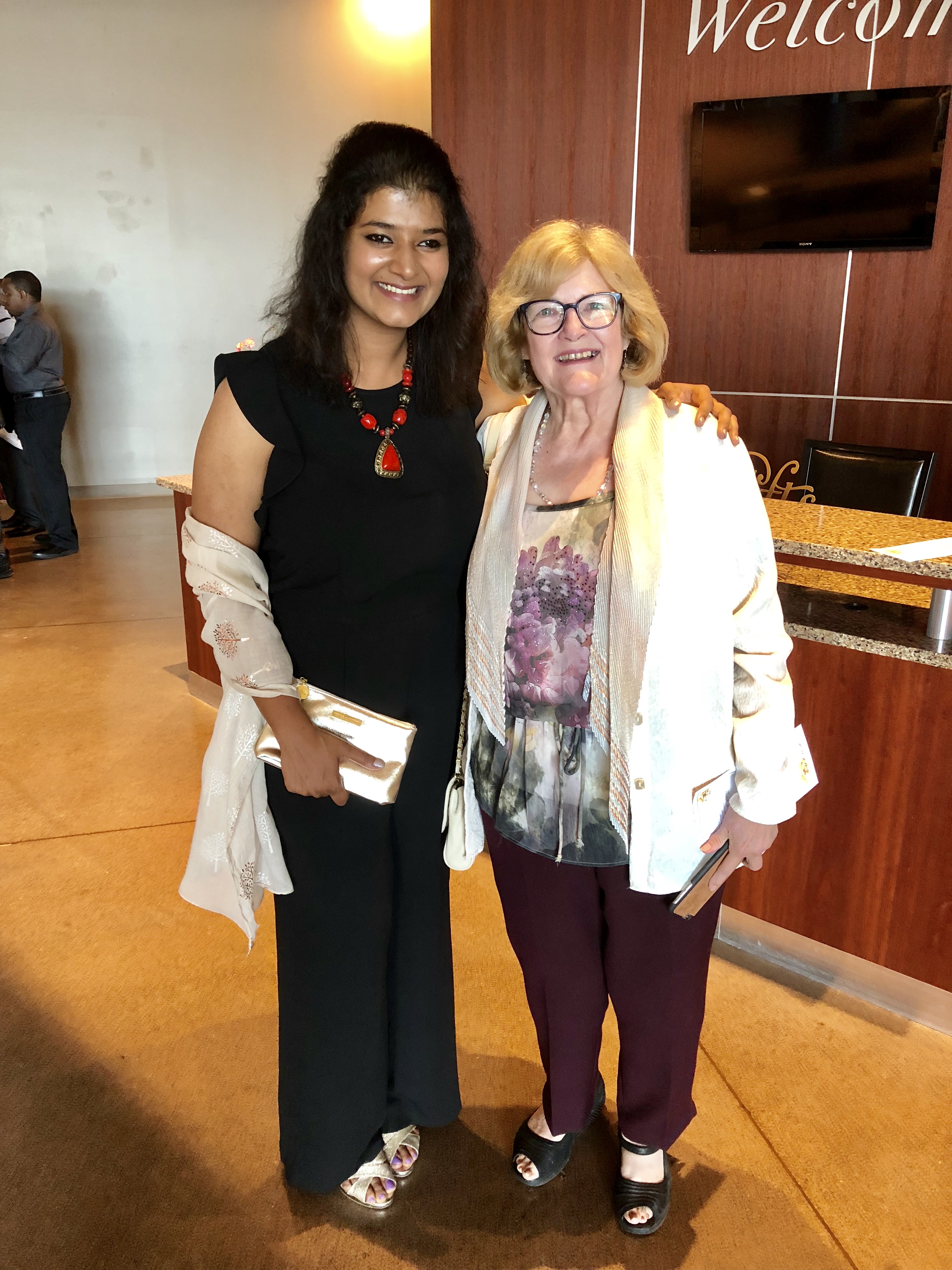Commission for Global Dimensions of Student Development
Monday, 15 April 2019 - 8:00am
By Kriti Gopal
Nine years ago, I had no idea that student affairs and higher education administration was a field of study one could pursue in college in the United States (U.S.). However, when I learned about it, I was thrilled and knew that my skills could fit well into a variety of areas within the realm of student affairs. It all began after I had the opportunity to begin my undergraduate degree in the U.S. as a young teenager. I was born and raised in Mumbai, India, where I completed my K-12 schooling. English is not my first language but I was lucky to attend a Catholic convent school in India which further diversified my learning. As the first person in my family to travel abroad for education, I struggled to understand the educational system in America. The new surroundings and significant differences in the cultures put me in many challenging situations I had not prepared for beforehand. The lack of knowledge to understand the educational system and processes forced me to resort to experiential learning. I made the conscious effort of investing in opportunities in various offices I frequently visited every semester. I was intentional and chose offices that were central to me and many of my peers. On campus, at the University of Central Missouri (UCM), we had a small population of 700 international students when I began college in 2009. I wanted to gain a better understanding of the programs, policies and initiatives of some of these offices so that I could help other international students on campus. Some of these offices were The International Center & Office of Study Abroad, Office of Student Activities, Office of Accessibility Services, The Honors College, Office of Conferences & Events, Department of Communication & Sociology and the Kirkpatrick Library. What I began to learn from my experiences was that all offices ultimately worked towards achieving one goal: To provide holistic development and success to all college students.
In my sophomore year, I was chosen as an undergraduate representative from the Student Government Association (SGA) to serve on the campus wide committee that was being organized to reform the General Education Program for undergraduate students at UCM. This opportunity along with my ongoing work with several offices opened the door for me to connect and build positive relationships with several professors, staff members, and administrative professionals across campus. The interactions, styles and various organizational models of learning raised many questions in my mind about student learning and involvement. My learning was further enhanced because of the unwavering support I received from many of my supervisors. One such person is Mrs. Beth Rutt. She was the Director of Student Activities and involvement at the time. Although, I never had the direct opportunity to work with her until several years later, she always encouraged me beyond the classroom setting. As a committed professional to several diverse causes on campus, and especially being the voice for under-represented students, Beth was a pioneer of student engagement. Our paths crossed many times working on similar projects and every time I would see her, she encouraged me to not give up on my hope in working for field of student affairs. Another person that comes to mind is Ms. Barbara Mayfield, who was the Director of Accessibility Services on my campus. She was also an advocate for students who struggled to find their voices on campus. Both Beth and Barbara were role models who were not just my supervisors but ultimately became family over the years I spent at UCM, challenging and pushing me to pursue my goals in wanting to work with college students.
Picture: Kriti Gopal and her former supervisor, Mrs. Beth Rutt, Director of Student Activities and Student Wellness & Recreation Center at UCM.
In 2017, I completed my master’s degree in student affairs administration after which I began working as the program assistant in the Frank J. Guarini Institute for International Education at Dartmouth College. During that time, I had several opportunities to help many first-generation Dartmouth students who embarked on their journey to study abroad through the programs our office provided. This was another unique opportunity that I cherish because it allowed me to put into practice, observe and advise these students through the lens of experiences and challenges, I had faced in preparing to become a foreign/exchange student in coming to the United States. I do believe that each student’s experience is unique but there may be overarching themes and trends that may be useful in helping these students have a fulfilling experience. My time at Dartmouth was short lived because of challenges associated with securing a work visa which would allow me to continue in my role. It was a stressful year because I was trying to do well in my new role as a new full-time professional, shifting gears from being a full-time student. This situation was also coupled with the stress of finding ‘My Fit’ within the world of student affairs. I spent the next several months of 2017 trying to secure a job within universities and colleges across America only to learn that my chance of securing a work visa (better known as a H1-B visa) was infinitesimal. What was worse was the taboo that is still prevalent around the subject and topic of work visas for international students (especially non STEM majors) in job market. It was a lonely process where I tried making connections with several folks in our field to understand why it was difficult to hire and support someone in need of a work visa.
Surprisingly, I did not get a lot of empathy. At times, I was met with responses such as, “Your profile is great with amazing experiences, yet we have better candidates,” to “You are less deserving because you are a foreigner.” The entire job search process took a toll on my mental and physical health along with raising many questions in my mind about not being genuine in my approach. I nearly gave up hope in wanting to stay in the field and began thinking of what I could have done differently if I was to continue working with college students. Having additional barriers relating to work visas only further limits opportunity that is already limited. A long term goal that I had envisioned was getting into a doctoral program. All along I knew, my options were very limited but the reality hit me in the middle of July 2018 after being rejected from a job offer for the 45th time within a span of eight months. I began to realize that my options were truly limited. I could either go back home and give up on my dream or choose to go back to school because there was simply no way of getting a job with a work visa. However, my fate along with faith had a different plan. A month later, I moved to Michigan and began the doctoral program in educational leadership at Central Michigan University.
Sometimes, even today it is hard for me to believe that I am here in the program and thriving. The first semester was very tough because I battled a severe nerve injury in my left arm and continued to be faced with adversities in acclimating to being a full-time student from being a full-time professional. I know this could not have happened without the immense support I’ve had from a lot of folks. This includes my parents – who continue to make many sacrifices to help me pursue my goals and aspirations. I would also like to recognize my former supervisors, faculty members, colleagues and friends who had reached out to me after reading about my difficulties in securing a work visa.

Picture: Kriti & her former supervisor, Ms. Barbara Mayfield, Former Director, Accessibility Services, UCM
In thinking further about my own experiences and what impact I want to continue to make within the field, I am left with questioning the idea of diversity and inclusivity which is a popular topic for most college campuses in U.S. How are we supporting international students that are met with challenges in terms of being a minority and under-represented groups on college campuses? The 2018 Open Doors Report published by the Institute for International Education (IIE) estimates that there are currently 1,094,792 international students studying in the U.S. including those on Optional Practical Training (OPT). This report also explained that U.S. remains the top host of international students globally. According to the U.S. Department of Commerce, international students alone made a significant financial impact on the United States Economy in 2017, by contributing $42.4 billion to the U.S. economy through tuition, room and board, and other expenses. Yet, when it comes to measuring success of these students in the job markets, the numbers are significantly low (NACE Job Outlook Report, 2018).
International students can offer and bring skills to the market along with diverse backgrounds and experiences when given that chance equally. Today, with where we stand on rigid immigration policies, matters of equity and access of education and programs for international students, there is significant evidence to question the idea of ‘equal opportunity,’ advertised by higher education institutions. Especially, when we know that international students are further marginalized in a world with disparaged opportunities. These are key conversations we should be discussing and willing to continue.
Bio of Kriti Gopal

Kriti Gopal was born and raised in Mumbai, India. She came to the United States in 2009 to pursue her undergraduate degree in corporate communication with a minor in public relations at the University of Central Missouri (UCM) located in Warrensburg, Missouri. As a first-generation international student, she was faced with adverse challenges in adjusting to the U.S. education system. Her intentional connections and associations through campus involvement allowed her to work in a variety of administrative office and departments across campus at UCM. These experiences eventually led to her interest in Student Affairs. Kriti is multilingual and can fluently speak three South Asian languages - Tamil, Hindi and Marathi. She is currently a first year doctoral student in the Educational Leadership (with a focus on higher education) program at Central Michigan University located in Mount Pleasant, Michigan. She holds a graduate assistantship within the Office of Community Engagement on campus. Her research interests include understanding international student experiences through persistence, retention, adjustment issues, intersectional identities and experiential learning through collegial experiences.

